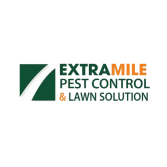Recap of December 2023 First Friday with Florida First Detector
In this month’s webinar, we focused on Hymenoptera, an order of insects that includes wasps, bees, ants, hornets and more. Hymenoptera is an extremely diverse order of insects. Some feed on plants and others are predatory or parasitic. Many Hymenoptera are beneficial insects and provide unique ecosystem services like pollination or nutrient recycling. We utilize many for biological control agents to help control pests in agriculture, horticulture and beyond. While this order has many beneficial species, there are some invasive species too!
Two notable species that we are on the lookout for in Florida are the Northern Giant Hornet (Vespa mandarinia) and the Yellow-legged hornet (Vespa velutina). Both species are native to Asia. While recent news stories may have alarmed folks about these two species, the main concern is the potential harm they can cause to honey bee hives. They can very quickly kill off a bee hive. Both species can sting humans, but this is usually not life threatening for folks without an allergy to bee/wasp stings. Both species have been spotted in other states in the U.S., but to date, none have been found in Florida.
Another pest we discussed was the Africanized honey bee (Apis mellifera scutellata) which is a subspecies of the honey bee that many beekeepers manage throughout the world. The subspecies is originally from Africa but has been introduced to Central and South America and Southern parts of the U.S. including Florida. The Africanized honey bee looks very similar to other subspecies but it tends to be much more aggressive, swarms more frequently and is less selective about its nesting sites. If you encounter an aggressive hive out in the field or near your home, you should slowly back away from the hive and consult a professional. If the bees attack, run away from the hive and keep running. Cover your nose and mouth to prevent bees from entering the airways. Avoid jumping in water as the bees may wait for you to emerge. If possible, run to a protected area like a building or car. If you have severe stings, or are allergic to bees, seek medical attention.
Resources on invasive hornets, wasps, ants, and more
UF Fire Ant Control Recommendations
UF EDIS on the Northern Giant Hornet
USDA Resources on Northern Giant Hornet
UF EDIS Africanized Honey Bee
FDACS Yellow-legged Hornet Resources
USDA Resources on Yellow-legged Hornet
Resources for Florida Beekeepers
FDACS Apiary Inspections Information
UF Beekeepers Resources
UF Honeybee Research and Extension Lab
Want to watch the recording?
What is the upcoming schedule?
We are meeting online via Zoom from 12:00PM-1:00PM on the First Friday of every month from Sept 2022-Aug 2024. Please visit this blog for registration information and the upcoming schedule for Sept 2023-2024.
Questions?
Contact Dr. Morgan Pinkerton, morgan0402@ufl.edu
Or
Visit the Florida First Detector Website
The post December 2023 First Friday with Florida First Detector appeared first on UF/IFAS Pest Alert.
Recap of December 2023 First Friday with Florida First Detector In this month’s webinar, we focused on Hymenoptera, an order of insects that includes wasps, bees, ants, hornets and more. Hymenoptera is an extremely diverse order of insects. Some feed on plants and others are predatory or parasitic. Many Hymenoptera are beneficial insects and provide
The post December 2023 First Friday with Florida First Detector appeared first on UF/IFAS Pest Alert.
—
Source: UF/IFAS Pest Alert
From: Read More



